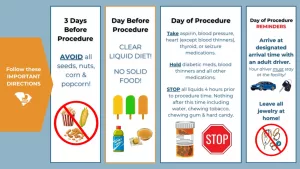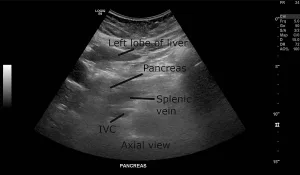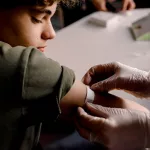When Your Gut Starts Whispering
So, tell me: have you ever found yourself googling stomach weirdness at 2 a.m.? Maybe your jeans get tighter no matter what, or a weird pain keeps flaring up just when you’re starting to relax. It’s the kind of thing you brush off at first (“eh, it’s probably just that pizza…”), until one day your regular doc says, “Let’s send you to a gastroenterologist, just to get it checked.” Cue the nervous giggle … and the million questions. What now? What’s this appointment actually like?
Honestly, I hear you. One of my best friends (let’s call her Lisa) thought her symptoms were just “stress.” She only got help after months of… let’s say… not-so-glamorous bathroom drama. Trust me, when you finally land that first GI appointment, you want to know what’s coming. So let’s walk through gastroenterology appointment what to expect together — no dry textbook talk, just a friendly guide, plus some tips I wish I’d known sooner.
:max_bytes(150000):strip_icc()/GettyImages-1358954851-f46448008e1642758855d9df7eee3d6f.jpg)
Before You Walk In: The Prep That Matters
Here’s a secret: your appointment actually starts long before you step into the doctor’s office. Think of it as training for a race — but instead of running, you’re organizing your medical life. (Granted, less sweat… but possibly more paperwork.)
Gather the Goods
What do you need? Let’s do a quick checklist:
| Bring This | Why It Matters |
|---|---|
| List of meds & supplements | Your doc needs to know what’s in your system (even daily vitamins — yep, even the gummy ones) |
| Symptom notes or journal (dates, details, triggers) | This is gold. What hurts, when, how often, what makes it better/worse? |
| Family history | Certain GI issues run in the family. No shame if you have no clue—just jot what you know |
| Insurance info and ID | The “fun” part of healthcare. But it keeps things moving |
| Copies of recent blood tests, imaging, procedure records | Saves SO much time and avoiding repeat tests |
Pro tip: If you forget your symptom notes, all is not lost… but your GI doc will thank you if you jot things down for Symptoms to tell gastroenterologist so nothing gets missed. And hey, you might feel a touch awkward writing about bowel habits, but every little detail helps.
Can You Eat Before?
You might be wondering: can I eat before a gastroenterology appointment? For most basic GI visits (no testing, just talking), the answer is yes. Unless they tell you not to. But if you know you’re getting blood work, or anything more than a chat (like a scope), double-check! Nothing ruins day-of-test zen like suddenly realizing: “Wait, was I supposed to fast?” (Lisa sent a panicked group text about this — she managed to reschedule but still grumbles about that ruined breakfast.)
Okay, medical files, symptom diary, morning coffee? You’re ready.
In The Room: What Happens During the Visit?
Walking into your first GI appointment usually feels a bit more like meeting a detective than a stern school principal. (No gavel, just questions.) Honestly, it’s less dramatic than you think—and odds are, you’ll spend more time talking than anything else.
The “Getting to Know You” Interview
First things first: expect a boatload of questions. They’ll want to know:
- What symptoms worry you most? (Don’t be shy: pain, bloating, “things just aren’t right,” etc.)
- How long has this been going on? Is it getting worse, or better, or both?
- Are there certain foods that seem to trigger problems?
- Have you noticed any blood (in the obvious places)? Losing weight without trying? Exhaustion for no reason?
- What’s your daily routine like? Stress, sleep, exercise?
If you’ve glanced at Symptoms to tell gastroenterologist, you already know—no detail is too weird, too “TMI,” or too minor. This is the one place where bathroom talk is not only allowed, it’s welcomed. (I promise, they’ve heard it all. So go for it.)
The Physical Exam (Don’t Stress)
Once the chat wraps up, it’s exam time. Usually, this just means:
- They’ll gently press on parts of your belly and ask if anything is tender
- Sometimes they’ll check for swelling, listen for funky sounds with a stethoscope
- Yes, they may ask to check things “down there.” If you’ve never had a rectal exam… it’s weird, but over quickly, and helps them rule out certain things fast
For kids and teens, the approach is gentle and explanatory. If you’re worried or squeamish, you can say so — trust me, honesty is the best policy. (One reader told me she cracked a joke mid-exam about “should’ve skipped the beans” and it actually broke the tension.)
How Adult vs. Kid Visits Differ
| Adult Visits | Kids/Teens | |
|---|---|---|
| Style | Direct questions, privacy prioritized, may ask for you to wear a gown | Lots of reassurance, smaller gowns, extra comfort steps if needed |
| Exam | Standard check, may include rectal or quick visual exams | Physical gently explained, parents/support allowed in room |
| Aftercare | Next steps by email or call | Handouts, stickers, or even a high-five |

If Tests or Procedures Pop Up
Sometimes, a routine appointment isn’t quite enough for your GI to pin things down. If you need extra tests (blood draws, stool samples, x-rays, or an endoscopy/colonoscopy), don’t freak out. It sounds bigger than it is – but yes, for those scopes, you’ll 100% want to ask, can I eat before a gastroenterology appointment? Usually, you’ll get pre-procedure instructions (like fasting or a special “prep”). It’s not exactly a spa day, but it’s over quickly and gives important answers.
Here’s something folks don’t always mention: If you’ve had scans, tests, or procedures elsewhere, bring the actual images or reports if you can. Not just the summary. One GI told me it can save days of back-and-forth (“Why isn’t my last colonoscopy here?!” — true story from a very frustrated patient).

Jargon Buzzwords (And What They Actually Mean)
- Endoscopy: Camera check of your digestive tract via mouth (upper) or below (colonoscopy) — not done at first visit, unless urgently needed.
- Stool sample: Yes, you collect it yourself, at home. No, no one will judge your “container carrying” walk-of-shame.
- Ultrasound or CT: Easy, quick imaging; totally non-invasive.
- “Prep”: The (in)famous colonoscopy drink. It’s… a rite of passage, but not for first appointments. (Comparison for fun: Some say it’s like chugging weirdly salty lemonade.)
When You Leave (Now What?)
Whew! You made it. Before you go, your GI should give you a rundown: possible diagnosis, next steps, maybe even the “here’s what it could be — and what we’ll check for next” pep talk. They may prescribe meds, suggest diet tweaks, or just set up a follow-up. The most important thing? If you’re fuzzy on anything, ask again. There’s no pop quiz, and they really do want you to understand what’s happening.
Here’s where having a list (or even a running note on your phone) comes in: what questions do you still have? If you didn’t catch everything, ask about resources or patient guides; most offices have easy-to-read info to take home.
Real Talk: What If You’re Overwhelmed?
Everyone’s been there. It’s a lot to take in, especially if your fears are running wild. My friend Lisa left her first GI appointment misty-eyed, convinced she’d never eat garlic bread again. (Spoiler: she can, just maybe not with extra cheese toppings.) Point is, GI docs want you living well, not just surviving.
Keep an eye on how symptoms change over time. Track what triggers them, which foods help or hurt (can I eat before a gastroenterology appointment style!), and always bring that Symptoms to tell gastroenterologist journal to the next visit. (No one in the waiting room will judge you for scribbling “bloating after oatmeal … again?!”)
Living Well, Even If Your Gut’s a Diva
Here’s the wild thing: a good GI appointment doesn’t just help you “fix” a pain or a symptom. It can totally change how you feel about your body. You’ll leave knowing more — about triggers, food, stress, sleep — and feel less alone. Seriously, I know someone who went thinking only about her stomach pain, and ended up swapping recipes with her GI for gut-friendly breakfasts. It’s not all restriction and gloom!
Simple Gut-Healthy Habits (Tiny But Mighty Wins)
| Habit | Why It Works | Bonus Evidence |
|---|---|---|
| Add more fiber slowly | Speeds things up… but don’t go too wild or you’ll be wind-powered for days | GIs love it. Your colon does, too |
| Stay hydrated | Water = magic for digestion, every single time | Studies link it to fewer gut symptoms research on hydration and digestion |
| Move your body—even a walk counts | Gets the bowels going and reduces stress | Experts recommend activity for overall gut health |
And if your doctor tells you to avoid certain foods before your next appointment (see the always-important can I eat before a gastroenterology appointment link)? Listen! But remember, these changes are usually short-term or just for certain tests.
Conclusion: You and Your Gut, Back on the Same Team
If you’ve made it this far, give yourself a virtual pat on the back. Navigating the world of GI appointments can feel a little intimidating, maybe even a touch embarrassing… but it’s so worth it for your energy, mood, and, well, toilet confidence. The truth? Gastroenterology appointment what to expect isn’t a mystery — it’s a heart-to-heart about your health, with a few pokes, prods, and maybe some new breakfast ideas.
Walking in prepared, chatting honestly about all your symptoms (yep, even the awkward ones), and knowing what will go down during the visit is the best way to advocate for yourself. Take a deep breath. Put your questions and notes in your bag. Remember, you’re not alone—and your “gut feelings” actually matter. Next time your gut starts whispering (or shouting), you’ll know exactly what to do. Cheers to smooth digestion and answers you can trust. And if you need to jog your memory about what to eat or say before your next visit, you know where to click for help: Symptoms to tell gastroenterologist or can I eat before a gastroenterology appointment. Here’s to feeling better from the inside, out.
























Leave a Reply
You must be logged in to post a comment.